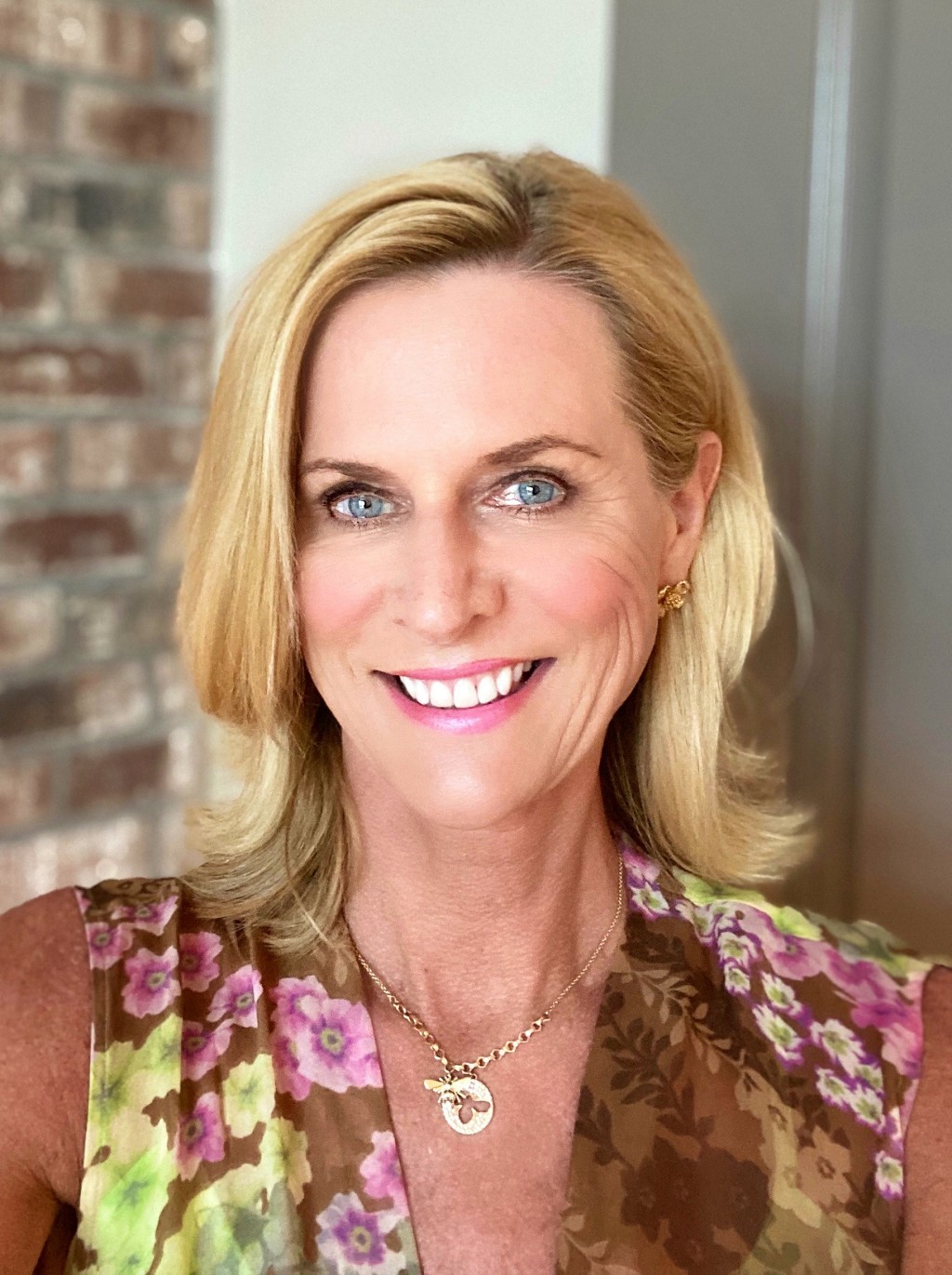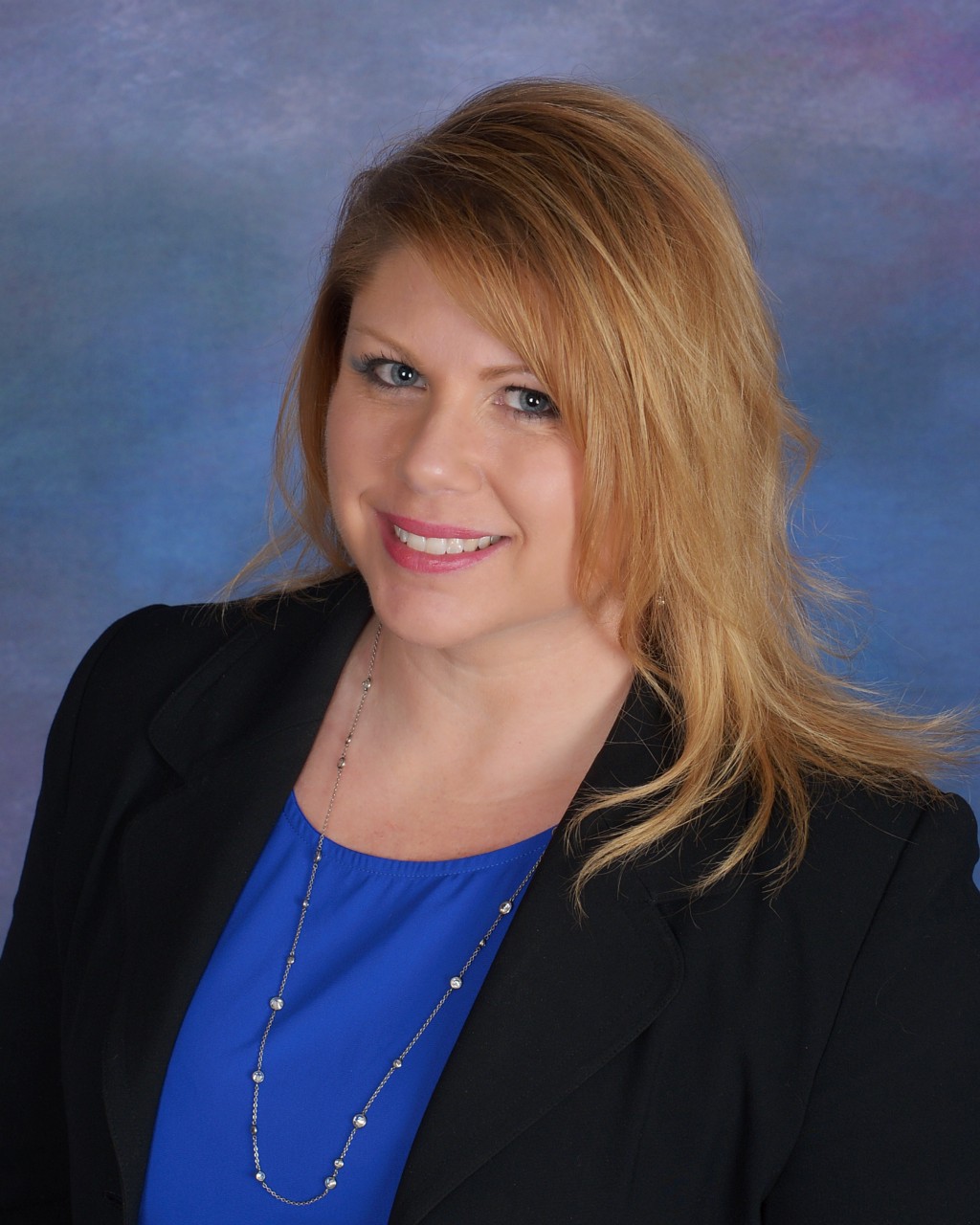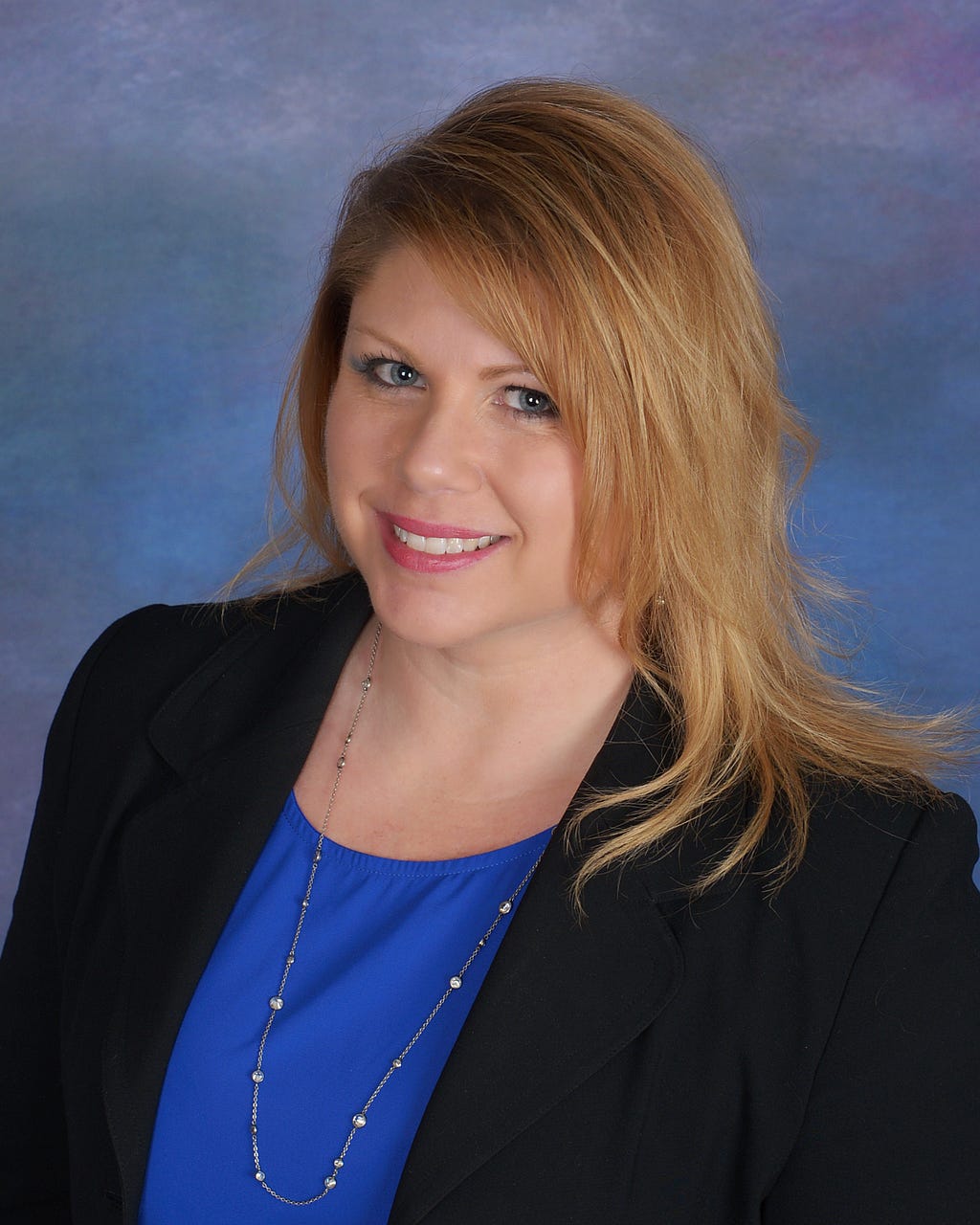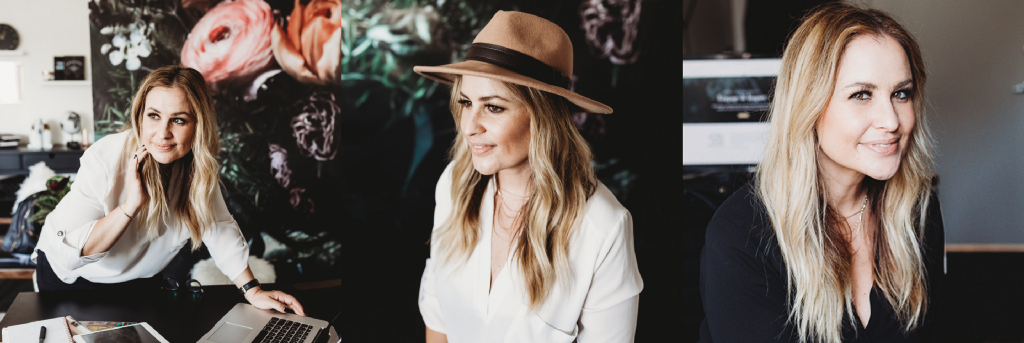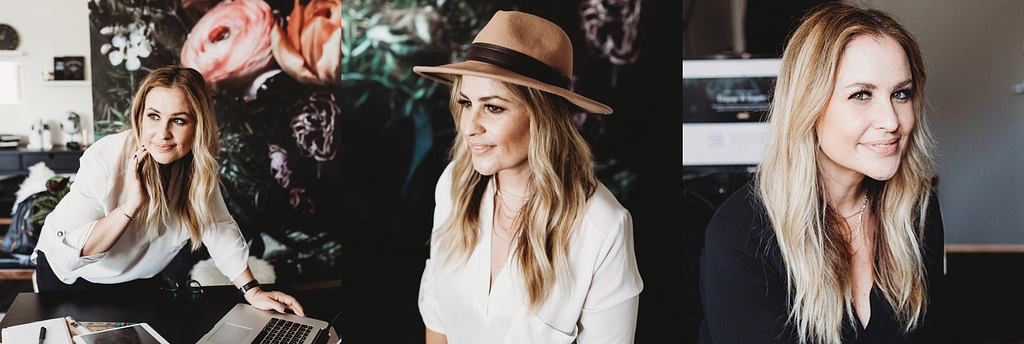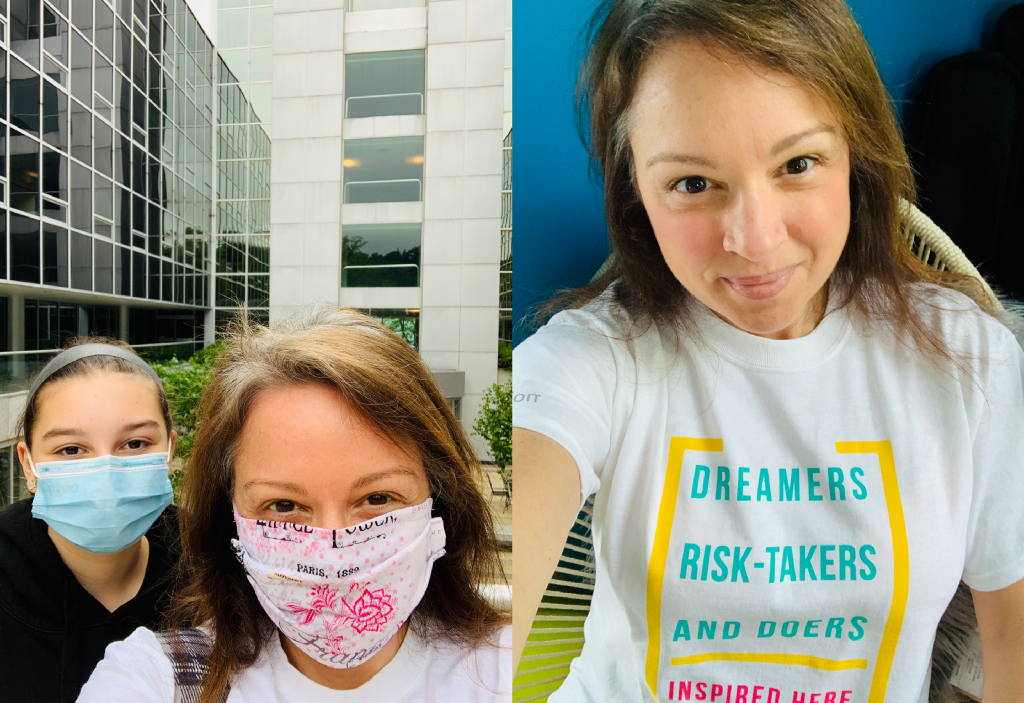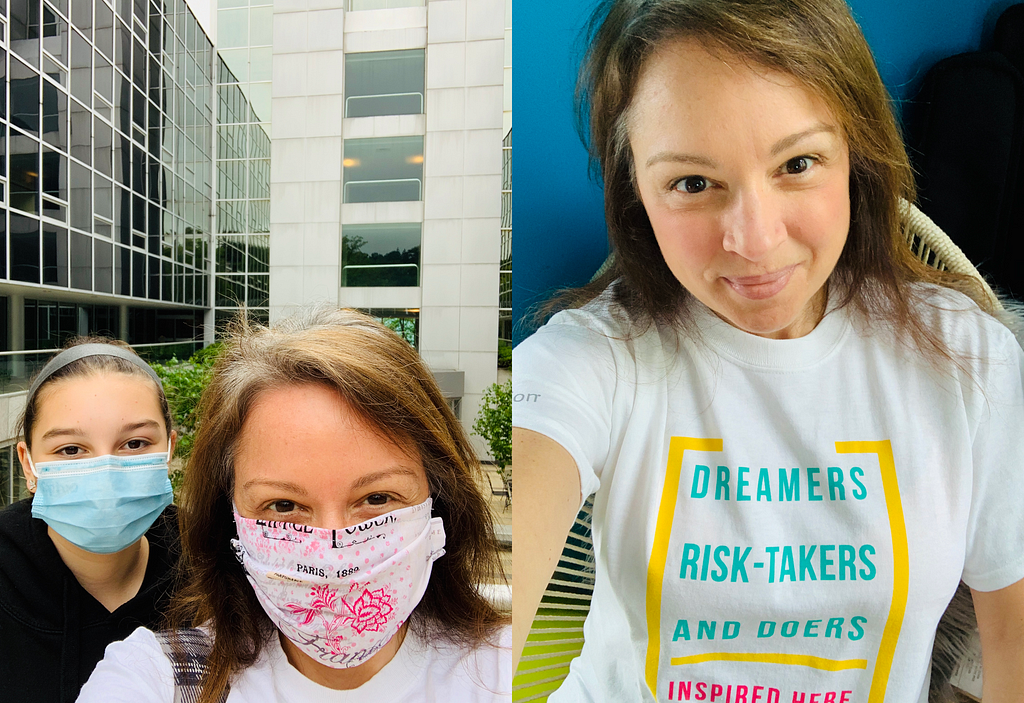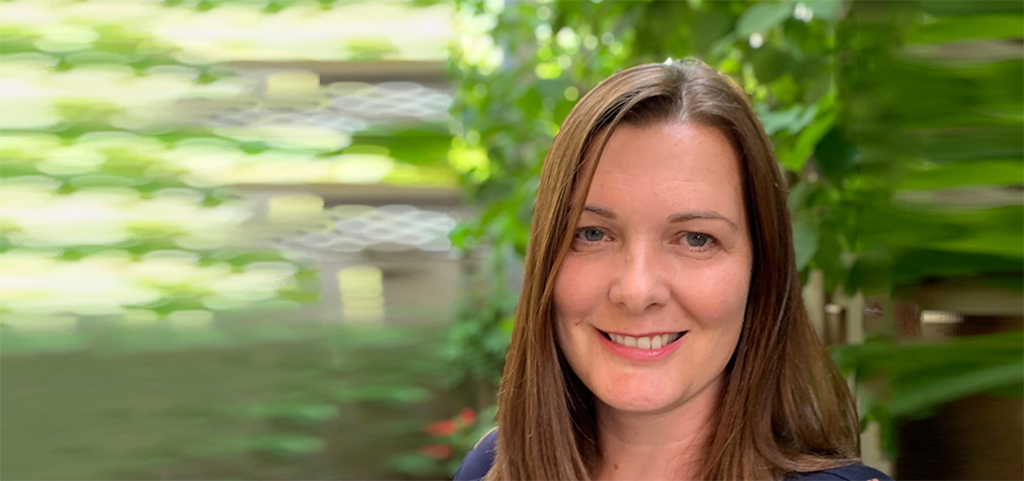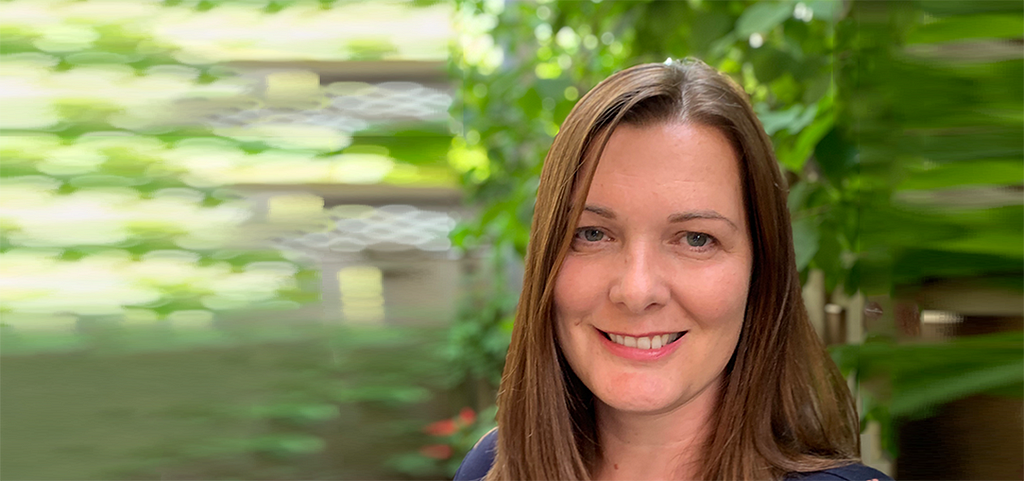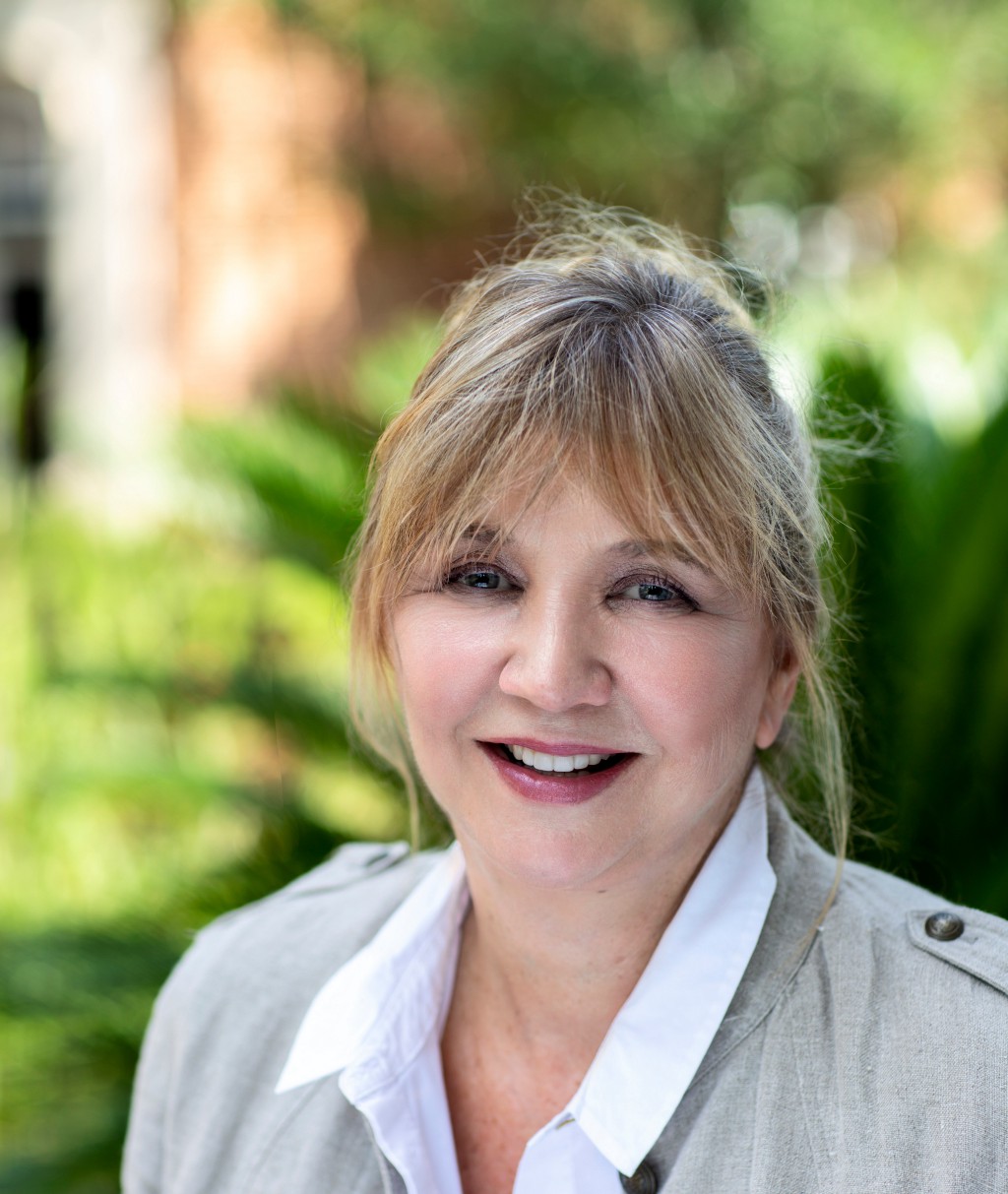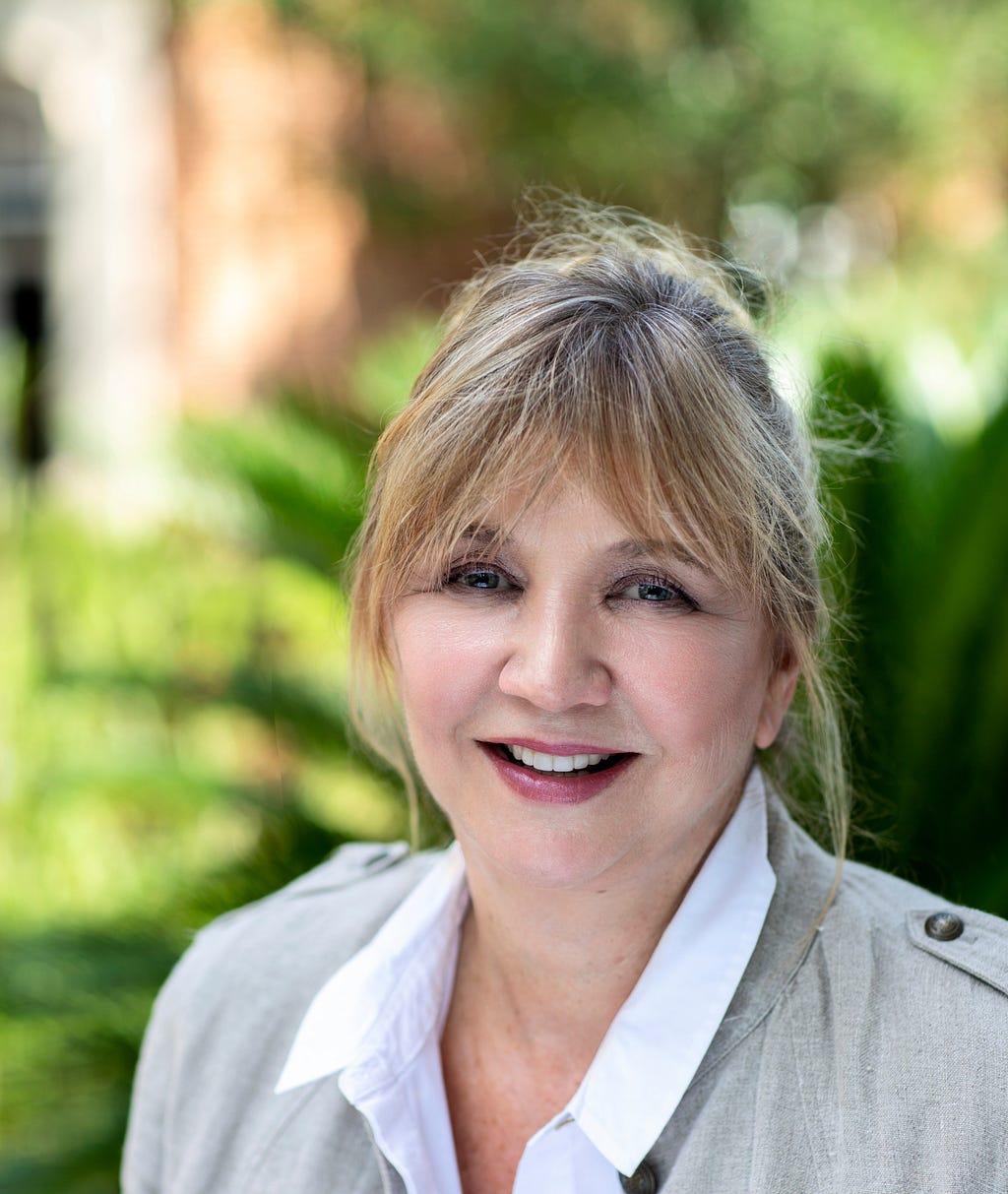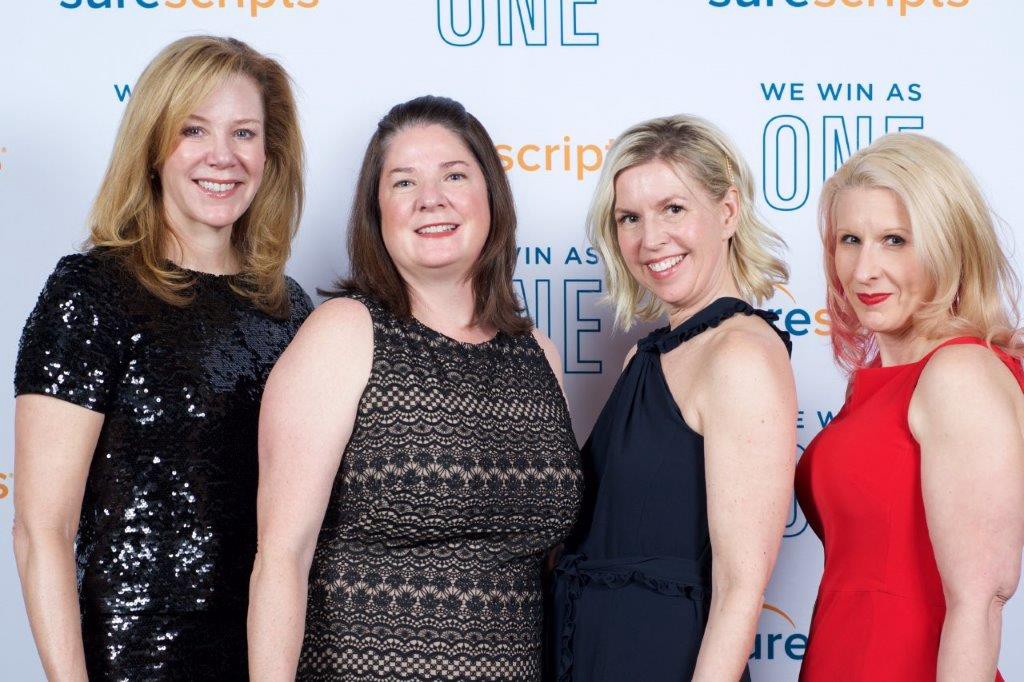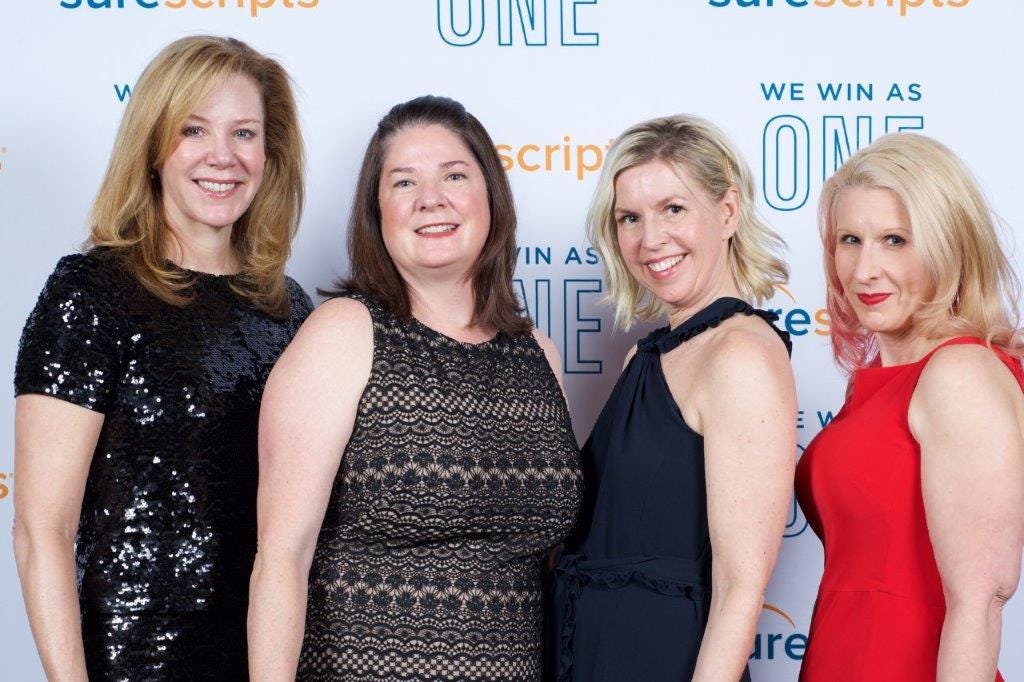Julie Parrish of RedSeal: “It’s ok to wear a dress; Don’t feel like you need to wear pantsuits and hide your femininity just to fit in with the men”
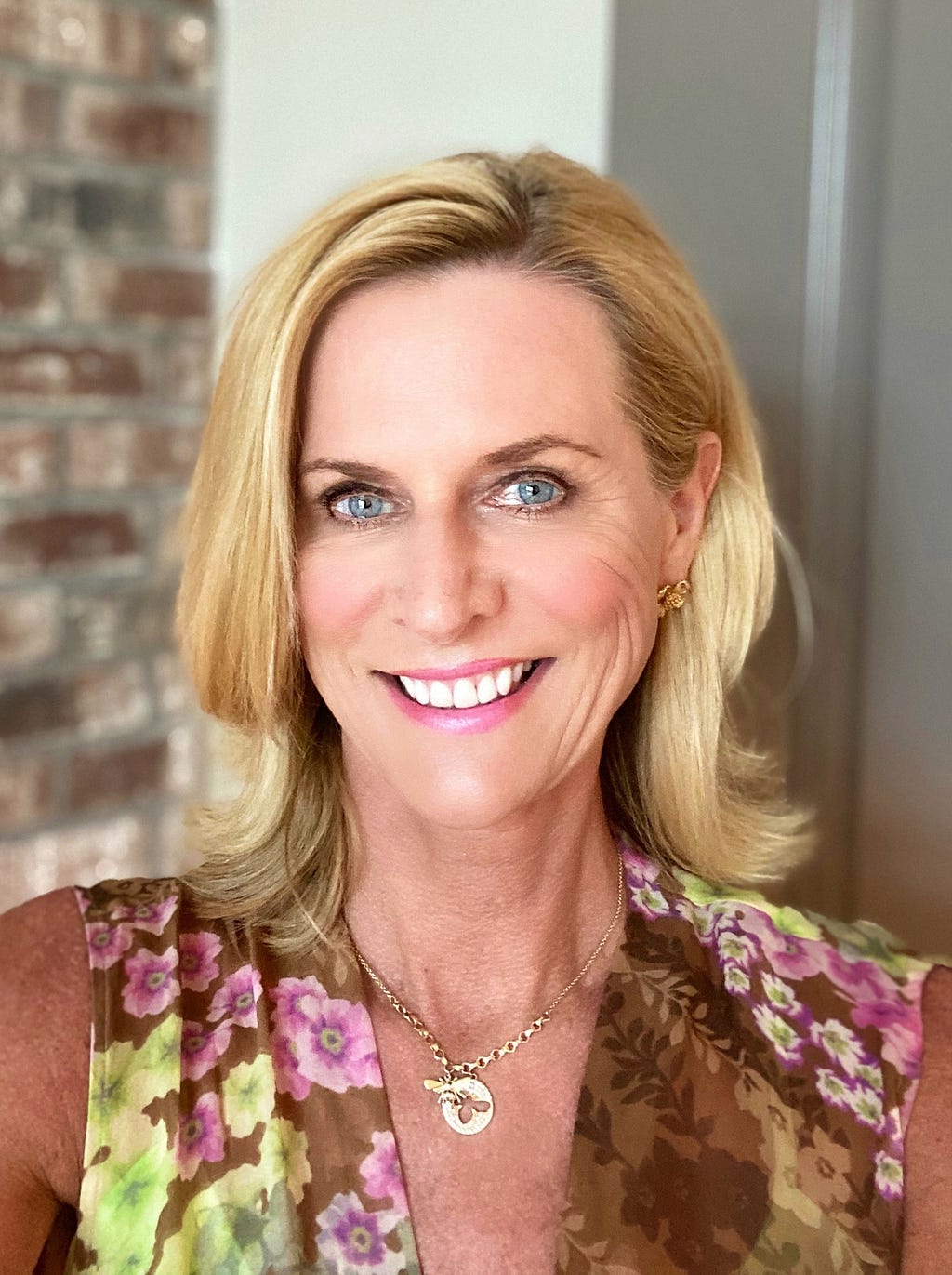
It’s ok to wear a dress. If you like skirts and dresses, wear them. Don’t feel like you need to wear pantsuits and hide your femininity just to fit in with the men. Dressing professionally is important, so skirts, dresses and blouses should be appropriate length and not overly revealing — but it is ok to wear them if you want to.
As a part of our series about strong women leaders, I had the pleasure of interviewing Julie Parrish.
Julie Parrish has more than 30 years of experience across sales, channel management and marketing in Fortune 500 companies. Prior to joining RedSeal, Julie held CMO roles at both Check Point Software and NetApp, where she oversaw all aspects of marketing, including product, field, brand, digital, events, and both public and analyst relations. Her track record includes leadership positions at Symantec, Veritas, Nokia Internet (now Check Point Software), 3Com and Hewlett-Packard.
Julie has a degree in decision and information sciences from Santa Clara University
Thank you so much for doing this with us! Before we dig in, our readers would like to get to know you a bit more. Can you tell us a bit about your “backstory”? What led you to this particular career path?
I was opportunistic more so than strategic in managing my career path. My Bay Area university education and slightly technical degree led to opportunities based in the Silicon Valley, and in high-tech. I chose Hewlett Packard for my first job because it was a big stable company, well-known and well respected. At that point in my life, I did not have a clear sense of how I wanted my career to play out, but I knew that starting at HP would be a great platform for learning and growing.
While my degree was in Decision Information Science, I was not interested in programming or systems analyst work. The position that HP had for me was a marketing analyst role which was exciting because it was in marketing but allowed me to leverage my operational studies and do analysis. I spent five years at HP before taking a management position at a smaller company.
I think there are two approaches (at least) to developing a career path: You can decide you want to be head of a particular function and chart that course, or you can focus on doing a great job with the position you have and see what opportunities present themselves. I chose the latter, which took me into channels, marketing, sales and operations at various points in my career. I was very focused on “how can I add more value” instead of “what will it take to get the next job on my checklist.” I believe this approach is what landed me on many cross-functional teams over the years at various companies. I had the opportunity to participate in M&A integration, discounting/costing programs, internal communication efforts, IT governance and many other areas in addition to my primary function.
The COO title I hold today is really a direct reflection of all that experience coming together.
Can you share the most interesting story that happened to you since you began leading your company?
My role as Chief Operating Officer started in May 2018. At that time, we were going through a cash crunch and had been fundraising for some time. A tremendous part of my job (even prior to the COO role) was dedicated to working with various PE, VC and banking organizations to raise money. There are so many interesting stories from that time period — from the people I met to the endless nights of spreadsheets, PowerPoint presentations and information gathering that was required along the way. I think the most interesting story happened on the day we actually got our funding from a terrific PE firm. My boss and I had had dinner the previous evening to discuss Plan B, C and D in case the deal fell apart at the 11th hour. My boss and I, along with our attorneys and our bank sat on a call with representatives from the PE firm, their attorneys and their bankers to finalize the transaction. Each of us had our banking portals open, ready to confirm account information. The final transaction terms were read to the group for each of us to verbally approve for the record. Once the approval was recorded, the “sending” bank was asked to confirm that they were ready to proceed, and the “receiving” bank was asked to confirm that they were ready as well. A very official command was given to transfer the funds and I will never forget literally watching the numbers in our bank account change in seconds. I felt a truly amazing combination of relief, awe, and pride that we’d finally done it.
Can you share a story about the funniest mistake you made when you were first starting? Can you tell us what lesson you learned from that?
Oh gosh, I’ve made a lot of mistakes. The one that comes to mind isn’t all that funny to be honest although it became funny over time, and the lesson is important. Many years ago, part of my job included organizing the annual sales kick-off meeting. Just before the meeting was to start, I was in the bar area with a few of my leaders and was informed that the external speaker that I thought was going to lead an important session was not available and a substitute had been chosen. I felt that the individual that had been chosen was not qualified and I loudly claimed that I would be a better choice to lead that particular session (which was a ridiculous claim). I’m sure you can guess where this story goes. I had not met the individual and he happened to be standing very near me. As I left the bar and headed to the general session room, he caught up with me. I introduced myself and his first words to me were “I’m happy to let you lead this session.” The funny part here is that I had no idea what he was talking about. I assured him that we were excited to have him and I helped him get set up for his session. As I started to walk away from him, I realized what had happened. I was mortified and turned around and went back and apologized profusely. He took it in stride, accepted the apology and was nice enough to compliment me on my integrity in owning up to my lapse in judgement. Now, here is where it gets really funny. He not only turned out to be a fantastic, well qualified speaker — but our paths crossed many times over the years. Since then, every single time I watched him speak he told this story (without mentioning my name or the company), including my apology and how it made him work harder to be a great speaker. What is the lesson? There are so many, but the basics are:
- There was no reason for me to have been an unkind ego-maniac when I heard that the speakers had been switched. I have seen so many people do things like this over the years (without getting busted like I did), and the bravado does not make you look smarter or more powerful. It has the opposite effect.
- Do not miss an opportunity to apologize. Human beings make mistakes, but if you want to be a leader you need to own up to those quickly, make the “wrong” right and learn.
Ok, thank you for that. Let’s now jump to the primary focus of our interview. What is it about the position of CEO or executive that most attracted you to it?
I am attracted to roles that allow me to add as much value as I can to the company, based on my background and experience. At different points in my career, that has meant different roles — and sometimes even lateral shifts. For example, I previously made a big shift from a WW sales executive to be the CMO at a F500 company. On the organization chart, it was lateral move.
I’ve done a few of those lateral shifts over the years as opportunities presented themselves. The COO role is interesting to me because it can be a little undefined in terms of what functions sit within the organization, and it can change depending on what the company needs. When I first became COO, the role included IT, sales operations, corporate planning, business development and marketing. Over time as the needs of the organization changed, we moved IT and planning back into Finance and I took on more of a classic “Go-To-Market” set of functions — combining sales, service, support, operations and marketing. The range and focus of the role are dynamic, which attract me. And regardless of the functions within the team, the role always has a metrics and operational element.
Most of our readers — in fact, most people — think they have a pretty good idea of what a CEO or executive does. But in just a few words can you explain what an executive does that is different from the responsibilities of the other leaders?
Any “C” level role means you hold the highest level of responsibility for that function. Decisions made at these levels typically have company-wide, not just function-wide impact and can alter (positively or negatively) the overall results of the company. That fact really differentiates these roles from other leadership roles. If the CEO role is about setting the vision and strategy for the company, the COO role is really about helping the company operationalize and execute on that strategy.
What is the one thing that you enjoy most about being an executive?
I most enjoy the visibility and exposure to all aspects of the company. I don’t mean this from a personal standpoint, as in “I like to be visible.” I mean this from a business standpoint. At an executive level, particularly COO or CEO, you typically have visibility to all of the moving parts within the company, all of the challenges and opportunities that exist and can make a big impact on the overall success of the company. I like the range of decisions that I participate in, and the breadth of topics that I address.
What are the downsides of being an executive?
- It can be lonely at the top. I did not know what that really meant until I became an executive. Yes, there is a team around you. Yes, a board votes and weighs in on major decisions, but at the end of the day, a C-level executive has to make the final call on difficult topics based on all the input and advice. The outcome of that decision is one that employees and external constituents will attribute to you.
- You spend a lot of time managing optics and justifying decisions, which is challenging if not downright exhausting at times. As an executive, you are privy to more information and understand the constraints, options and variables that go into various decisions. The rest of the organization does not have this level of insight, and managing that gap requires the right level of transparency and nuance.
What are the “myths” that you would like to dispel about being a CEO or executive. Can you explain what you mean? There are many myths, but a few that come to mind are:
- Executives are geniuses and have all the answers. Great executives need to score high on the “smart” scale, but what makes an executive great is their ability to craft a vision/strategy, inspire teams to deliver the plan, communicate powerfully and take the right risks.
- Most CEOs were born leaders. Not necessarily. Many have overcome academic challenges, social awkwardness, fear of public speaking and skillset deficiencies over time. Most have had terrific mentors and coaches at some point that saw the potential.
In your opinion, what are the biggest challenges faced by women executives that aren’t typically faced by their male counterparts?
The following three areas have been challenges for as long as I have been in the workplace (a long time). While we’ve moved the needle a little bit, we clearly have not moved it enough:
- Pressure from society. Like it or not, men are still praised for bringing home the bacon and women for cooking it. Still. In 2020. How does that manifest itself for a woman executive? Women who work weekends, travel for work and do all the things required to be a successful executive will get the stink eye from teachers, pediatricians, neighbors and even family members that feel they should be spending more time at home. Men are rarely, if ever, asked “how do you do it all?” It is expected that men can be successful as a husband, father and a provider. It is considered extraordinary (as in not natural) for a woman to do the same.
- Corporate America is still a man’s world just in terms of the sheer numbers. Even in a scenario where there is no harassment and no discrimination, women are really outnumbered. That creates a level of discomfort in many areas — everything from team-building activities optimized for men (golf, scotch, cigars, sports) to the style of communication men are used to — and means that women need to constantly adapt if they want to fit in. A woman who suddenly realizes she needs to pump her breast milk will have a very different level of (dis)comfort if she has to excuse herself to take care of that while in a group of mostly women instead of mostly men. In most cases, it isn’t necessarily hard to adapt — but it wears you down and becomes exhausting over time.
- Unintentional bias in hiring and promotion processes. Women have not been in the workforce at executive levels as long as men have. Job descriptions for C-level roles are most often written with years of experience requirements at certain titles/levels. Men will, by default, have a greater number of years’ experience in most cases, simply because they have been in the workplace at these levels for much longer. This is why the pool of women candidates for executive roles and board of director seats is smaller than it should be, which leads to the predictable outcome of fewer women in C-level roles. We won’t make much progress here until we shift our thinking on how specific qualities, transferable skillsets and outcomes should shape a job description.
What is the most striking difference between your actual job and how you thought the job would be?
I’ve had a good progression of titles and responsibilities over the years. By the time I was at an SVP level, I was very close to the CEO and other C-Level roles and had a good understanding of what those jobs were about, in terms of scope of responsibility, decision making, expectations and outcomes. That said, the most striking difference was probably the amount of time spent positioning and explaining decisions. Internal messaging and communication are a big part of these jobs.
Certainly, not everyone is cut out to be an executive. In your opinion, which specific traits increase the likelihood that a person will be a successful executive and what type of person should avoid aspiring to be an executive?
A great executive inspires the organization in many ways. Someone who is consistently identified as being an inspiration can communicate powerfully (even difficult messages), and someone whose teams deliver results and follow their leader is a generally a good candidate. Great executives have to be decisive, take risks and innovate, and these are also important traits to look for. There is a lot to be said for EQ, or Emotional Quotient, and making sure that is balanced well with the IQ. If you can’t get teams to follow you, you won’t be a great executive.
The types of people that should avoid aspiring to be an executive are those that prefer to support instead of making decisions, those that prefer to avoid risk and conflict, and people that are not effective at collaborating with others. Leaders who may have delivered great results but have high attrition rates are also not great candidates. Finally, being an executive is not an 8:00 a.m. to 5:00 p.m. job, five days per week. I know plenty of people that have the skills and traits to be a great executive but prefer not to travel, not to work weekends and prefer to have a reasonable workday. You will not have perfect work-life balance in an executive role, unfortunately.
What advice would you give to other female leaders to help their team to thrive?
- Happy people produce better results, and women have natural skills in the areas of empathy, diplomacy, inclusiveness, resilience and humility. Lean into these traits as you work with your team to inspire results vs. dictating or demanding results.
- Don’t over rotate to trying to fit into the “boys club.” That can quickly be perceived as political or overly aggressive (even when it is not) and may alienate the team from the leader.
- Leverage the fact that the majority of your peers may be men. Ask them for advice and ask how they have succeeded with their teams. The best role models for female executives are not necessarily other women — but men.
None of us are able to achieve success without some help along the way. Is there a particular person who you are grateful towards who helped get you to where you are? Can you share a story about that?
There are so many people that I am grateful to — starting with my parents who always encouraged and supported my path, all of the wonderful bosses (almost all men) that developed and promoted me, and companies that took chances on hiring me.
A related story comes to mind from many years ago. I really wanted to get that Vice President title checked off. I felt I had the experience, leadership traits and track record of results to support the title. In a conversation with the head of human resources for the company I was working for at the time, I expressed my dismay that this VP title had not happened yet. My current position was big enough to be a VP job, and I felt I’d earned it. She asked me if I’d ever told my boss that I wanted to be a vice president. I hadn’t. I assumed that the track record spoke for itself and I’d watched the process play out a few times. She told me that she did not think the executive team knew that I had that level of ambition. She was right — they didn’t. Very important lesson here: if you don’t ask for the promotion, you probably won’t get it. I asked for it and I got it.
Then I forgot the lesson, which brings me to the one person I would call out here: Dan Warmenhoven, who was the Chairman of the Board at NetApp at the time. I had been the SVP of WW Channel Sales for a few years, and I asked him what else he thought I could do for the company and what potential roles or functions should I look at as possible career paths. He looked at me and said, “I don’t know why the hell you haven’t applied for the CMO job that has been open for 6 months.” While I had an awful lot of marketing experience — and at the VP level — it didn’t occur to me that I would be qualified, but I hadn’t asked. And I was qualified. I went for that job hard — and I got it. While this story came later in my career it was actually instrumental in shifting the perception of who I was and what I could do and led to more C-level roles.
How have you used your success to make the world a better place?
It takes all kinds of people doing many different activities to make the world a better place. Some people start charities and foundations, and others contribute to the process one person at a time. I am in that latter group.
Because of my success, I am visible. I get asked to speak to large groups, contribute to conversations like this one, and am well known in my company and in my industry. I prefer to be known for how I behave and the impressions I leave on people than for what I may have accomplished. The most important thing I can do is be a great example for my peers, employees, children, friends and family. Some questions I ask myself are:
- Am I seen as kind, thoughtful, caring and honest?
- Do I leave more than my fair share on the table?
- Do I exhibit grace, gratitude and humility?
- Do I lift people up or do I tear people down?
What are your “5 Things I Wish Someone Told Me Before I Started” and why? (Please share a story or example for each.)
- Don’t be the girl at the bar. Classic high-tech bonding, particularly at sales meetings, often takes place after hours at a bar. This is a male-dominated environment, and trying to fit in by showing that you can hang with the bros won’t win you the points you think it will. It can actually work against you.
- Some people won’t like you. Not every decision you make will make everyone happy, but you need to make the decision that is the greatest good for the most people. Similarly, some people just won’t like you… just because. You need people to respect you and you need more people to like you than do not, but you can’t worry about everyone liking you.
- You have to ask for what you want (see story above on promotions).
- It’s ok to wear a dress. If you like skirts and dresses, wear them. Don’t feel like you need to wear pantsuits and hide your femininity just to fit in with the men. Dressing professionally is important, so skirts, dresses and blouses should be appropriate length and not overly revealing — but it is ok to wear them if you want to.
- Things happens and you will need to be resilient. You might have been up for a promotion, and the company re-organized and now that role is gone or has changed. Maybe your company will have a bad earnings call and a knee-jerk reaction to slash budgets will occur — that might mean the campaign you’ve worked on for months will get cut. Maybe your company will be acquired and instead of becoming a general manager, you end up taking an exit-package. There is an awful lot that will happen outside of your control that can impact your career progression (positively and negatively), and how you react to those challenges is crucial.
You are a person of great influence. If you could inspire a movement that would bring the most amount of good for the greatest number of people, what would that be? You never know what your idea can trigger.
“Is it true, is it kind, is it necessary?” This is a very old quote and philosophy. For me personally, it fits in with my view on how I personally can make the world a better place: I can start by being a decent human being or a great role model — starting with what I say and put out into various platforms. I think we waste a lot of time, cause a lot of damage, and create a lot of unnecessary confusion when we don’t follow this simple guide. Our 24/7 always-on world is filled with so many social media options and platforms for people to “speak.” This has created more opportunity for divides, propaganda and hatred, in my opinion.
I would love to see a movement that taught and emphasized this philosophy across several channels:
- Schools
- Businesses
- Politics
- Marketing
- Media
Can you please give us your favorite “Life Lesson Quote”? Can you share how that was relevant to you in your life?
As simple as this may sound, I’ve always liked the basics of the following: “Be on time, follow instructions and don’t be a jerk.” One of my first managers at Hewlett Packard told me this. I was shocked at the number of times that some of my co-workers would use a different template for a presentation than the manager had provided or routinely be ten minutes late. I asked him how he felt about it, and he said that in his experience, the key to success is doing those three things consistently because so many people won’t. I have never forgotten it, and he was right. Within that simple lesson are fundamental attributes of discipline, respect and integrity.
Julie Parrish of RedSeal: “It’s ok to wear a dress; Don’t feel like you need to wear pantsuits and… was originally published in Authority Magazine on Medium, where people are continuing the conversation by highlighting and responding to this story.


